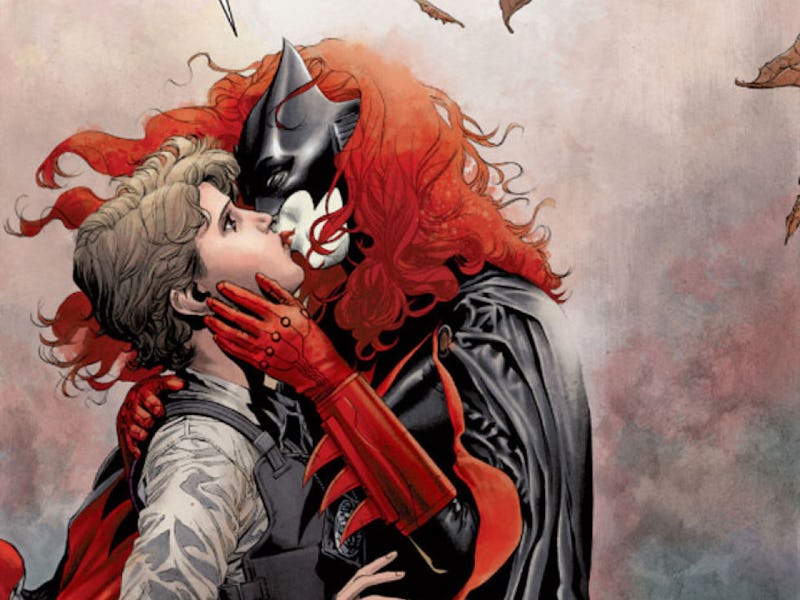At New York Comic Con this year, DC Entertainment announced its Batwoman solo comic book series, which the publisher intends to distribute as part of Rebirth’s second wave. In an interview with Inverse on Saturday, Dan DiDio says Batwoman’s identity as a lesbian has been a part of her character since day one, and that the solo series will honor her queer legacy.
“We introduced Batwoman back in 2006, and that was purely to introduce a gay character who was a part of one of our major franchises. It’s one thing to write a gay character in a book, but it’s another to make a player in a major franchise — Batman, Superman — gay. It brings a level of importance to the role, and it validates that character immediately.”
When Kate Kane, who operates in Gotham under the name Batwoman, first appeared in a New 52 issue, she was defined by several things: First, she was a highly competitive trained soldier who was dismissed from a military academy, despite being a top student, for being a lesbian. After losing her military career, she fell into drug use and tried to escape her frustrations through risky behaviors. That’s where concerned father figure Bruce Wayne stepped in, and Kane soon became a vigilante beside him.
DiDio insists that Batwoman’s creation, despite being for the explicit purpose of adding a gay character in DC’s books, was an organic one. “She’s not a throwaway, and she hasn’t changed one bit. She’s a hero who happens to be gay, which is no different than Bruce Wayne being a hero whose parents were murdered. She has a different point of view, and she stands unique among our pantheon of heroes.”
DC has escaped much of the controversy that surrounds Marvel, though both publishers have made public decisions this year to value stories about non-white, non-straight, and non-male superheroes. Fans seem particularly upset with Marvel swapping in new, diverse characters under existing titles — Riri Williams taking Iron Man’s position, or Jane Foster stepping in as the rightful Thor — and DC’s decision to showcase Batwoman seems to side-step that strategy. After all, as DiDio points out, Batwoman has been a part of DC’s canon for ten years now, so her first solo series is only capitalizing on a business strategy that began long before Marvel’s diversification movement took center stage.
